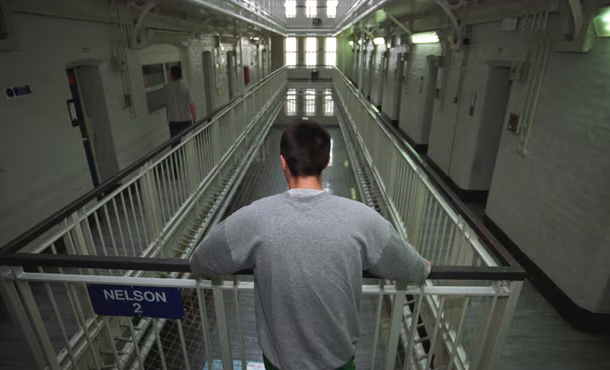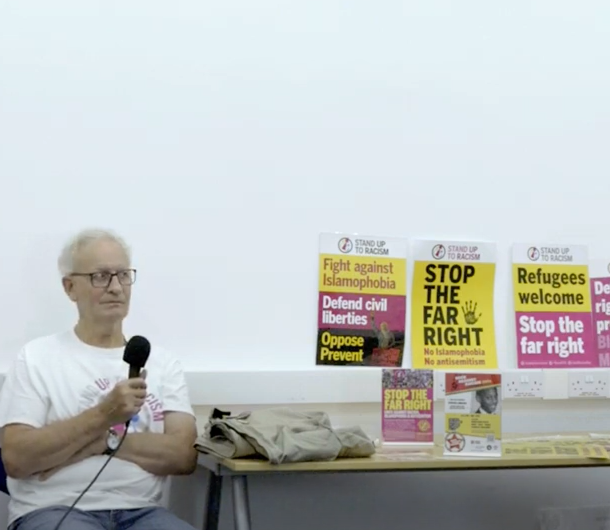
By Aidyn Temirkhanov
The 2024 UK riots have ignited intense discussions about race, inequality, and the future of Britain’s ethnic minority youth. Triggered by social, political, and economic tensions, the riots reflect deep-seated frustrations felt by marginalised communities across the nation. The aftermath has left many ethnic minority youths facing significant challenges, from increased discrimination and violence to enduring negative stereotypes.
According to a survey conducted by the Fearless Youth Association Team, 78.1% of respondents felt the riots were completely unjustified, 3.1% considered them somewhat unjustified, while 18.8% believed they were somewhat justified, highlighting widespread frustration among the public.
Origins of the 2024 UK Riots
The 2024 UK riots were sparked by a series of events including:
Economic Inequality: Economic disparities worsened by inflation, wage stagnation, and a housing crisis particularly affected ethnic minority groups. Youth unemployment in these communities was disproportionately high, creating an environment ripe for unrest. Among those surveyed, 21.9% of responders agreed that economic inequality was the most significant factor contributing to the unrest.
Social Media Influence: Nowadays social media is a main source of acquiring information and based on the survey 65.6% of responders felt that social media influence was the most significant factor that cause the riots.
Racial Tensions and Discrimination: A rise in hate crimes, along with perceived governmental inaction on addressing systemic racism, fuelled anger within many minority communities. Media portrayal of ethnic minorities, often focusing on crime and anti-social behaviour, intensified feelings of exclusion and alienation. Survey gather shows that 56.3% of responders believes that racial tensions and discrimination caused protests.
Political Mistrust: Many young people, particularly from minority groups, felt disillusioned by the political system. Efforts to address discrimination and inequality were seen as slow and inadequate, leading to a general sense of disenfranchisement among youths. Based on a survey, 28.1% of responders agreed that political corruption was the most significant factor that cause riots.
Police-Community Relations: Long-standing issues between police forces and ethnic minority communities escalated, with accusations of over-policing and racial profiling. The situation worsened after a controversial police incident involving the death of an ethnic minority youth, which became the immediate flashpoint for the riots.
The riots quickly spread to major cities including Southport, London, Birmingham, and Manchester, Nottingham, where racial and economic inequalities are most acute. With both peaceful protests and violent clashes erupting in the streets, ethnic minority youth found themselves at the centre of the turmoil.
The Impact on Ethnic Minority Youth
Increased Racial Tensions and Stigmatisation
Ethnic minority youths, especially those from Black, South Asian, and Middle Eastern communities, are often scapegoated during social upheavals. The 2024 riots have exacerbated racial tensions, making young people from these communities more vulnerable to discrimination in schools, workplaces, and public spaces. The media’s framing of ethnic youth as central figures in the riots has perpetuated harmful stereotypes, reinforcing a cycle of blame and alienation
Mental Health Challenges
The riots have had a profound impact on the mental health of ethnic minority youth. Many are experiencing heightened anxiety, stress, and feelings of hopelessness. Witnessing or participating in the violence, being targeted due to race, and seeing their communities torn apart have led to an increase in cases of depression and trauma.
Educational and Employment Setbacks
Youth from ethnic minorities were already facing challenges in the education system and labor market prior to the riots. The unrest has deepened these issues, as businesses in affected areas close, reducing job opportunities, and schools become increasingly underfunded. Some ethnic minority youths have faced exclusion from educational institutions based on suspicions of involvement in the riots, further marginalising them.
Tensions with Law Enforcement
Many young people from ethnic minority backgrounds have grown increasingly distrustful of the police. Widespread allegations of racial profiling and harsh treatment during the riots have strained relationships between minority communities and law enforcement. This lack of trust makes it more difficult for young people to feel safe and supported by authorities meant to protect them.
The Long-term Impact on Society
The survey results present a largely pessimistic view of the long-term impact of the 2024 riots on England’s society. A significant 75% of respondents believe that racial and social tensions will worsen, reflecting concerns about deepening divisions and societal conflict. Additionally, 21.9% anticipate increased distrust in law enforcement, while 9.4% are hopeful for positive changes in government policy and a strengthening of community solidarity. One respondent highlighted the importance of addressing immigration in a balanced manner, warning that treating any questioning of immigration as inherently racist could further erode social cohesion, particularly among the less educated, potentially leading to more violent disorder.
Another respondent stressed the need for open and honest dialogue with aggrieved communities, arguing that the country’s deep structural inequalities, particularly those rooted in class and region, must be tackled. Without addressing these systemic issues, they warned, immigrant groups will continue to be scapegoated, perpetuating unrest.
Other participants suggested the “proper regulation of social media platforms” and “improvements to education” as key steps towards preventing the spread of harmful content, with some advocating for the banning of specific social media accounts. These responses highlight widespread recognition that, unless the underlying inequalities and social challenges are dealt with, tensions will persist, underscoring the need for structural reforms and meaningful dialogue across society.
Advice for Young People from Different Backgrounds
In the aftermath of the UK riots, young people from ethnic minority backgrounds must navigate a challenging environment. Here are some key tips for resilience and empowerment during this time:
- Seek Mental Health Support – Acknowledging and addressing mental health is crucial. Access mental health resources through schools, community centres, or online platforms that cater to ethnic minority communities. Open conversations with friends, family, or trusted figures can also be valuable for processing emotions during these difficult times.
- Get involved in Community Action – Becoming involved in local activism or community-building efforts can provide a sense of agency. Whether it’s participating in peaceful protests, joining social justice groups, or volunteering for community improvement projects, positive engagement can help youth feel connected and empowered to make change.
- Education as a Pathway to Empowerment – Focus on education as a means to build a better future. For those facing barriers in the mainstream education system, seek out alternative learning opportunities such as online courses, vocational training, or mentorship programs that specifically support ethnic minority students.
- Know your Rights – It’s essential to know your rights, especially when dealing with law enforcement. Educating yourself on how to interact with police, the legal system, and understanding anti-discrimination laws can help you navigate tense situations more confidently. Organisations such as Liberty (https://www.libertyhumanrights.org.uk/) and the Equality and Human Rights Commission (https://www.equalityhumanrights.com/) offer valuable resources on legal rights in the UK.
- Build a Support Network – Connect with people who understand your experiences. Whether through cultural groups, faith-based organisations, or peer support circles, having a strong network of people who can relate to your struggles and offer guidance can be invaluable. This can also extend online, with social media providing platforms for solidarity and shared advocacy.
Useful contacts – racism and mental health:
In the wake of the 2024 UK riots, ethnic minority youth can turn to several supportive resources to help navigate the challenges they face. Here is the list of mental health organisations where people are able to seek help and support:
YoungMinds
Provide support for young people who are experiencing mental health issues and traumas.
Website: www.youngminds.org.uk
Mind specialised support for young people dealing with anxiety, depression, and trauma related to social unrest.
Website: www.mind.org.uk
Contact number: 0300 123 3393
Aashna
Provide list of specialists working to recognise how culture, faith, religion, skin colour, social background, sexuality, gender, and neurodiversity influence people’s experiences.
Website: https://www.aashna.uk
Email: info@aashna.uk
The Black, African and Asian Therapy Network
Provides support for Black British communities, including racial wellness workshops. Works to embed Black British cultural heritage and African and Caribbean histories into teaching.
Website: https://www.baatn.org.uk/
Bayo
Bayo is a place to find groups, organisations and services across the UK that offer mental health and wellbeing support to the black community.
Website: https://www.bayo.uk/
Contact details: Call 116 123 (UK-wide) or Text 85258 (UK-wide)
The Show Racism the Red Card and Kick It Out
Focus on anti-racism advocacy and offer resources for those experiencing racial discrimination.
Website: https://www.theredcard.org/
Contact number: 0191 257 8519
Email: info@theredcard.org
Additionally, youth can find empowerment and community through local support groups, cultural organisations, and online platforms that focus on social justice and activism. These resources collectively offer guidance, support, and pathways to resilience during this difficult time.

